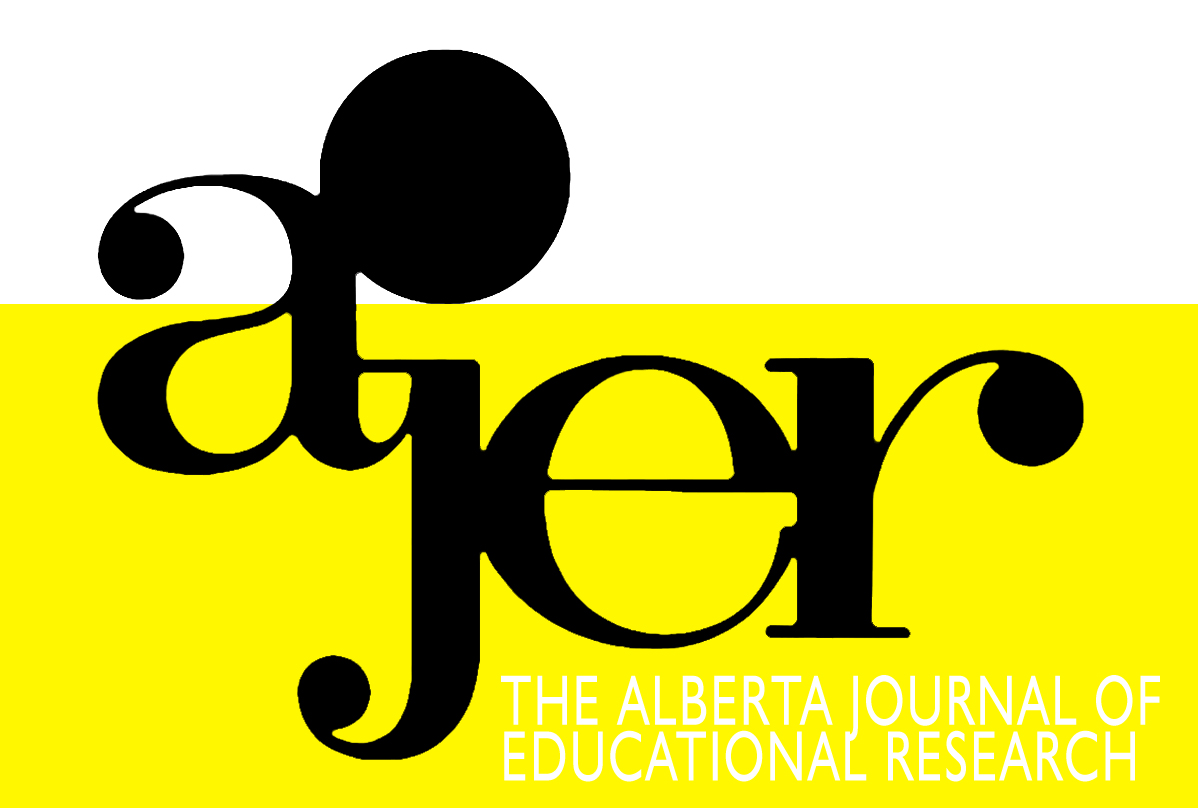Educating for Identity: Problematizing and Deconstructing Our Literacy Pasts
DOI:
https://doi.org/10.55016/ojs/ajer.v57i3.55500Keywords:
literacy, identity, teacher educationAbstract
In order to become effective teachers of language and literacy, it is critical for teacher candidates to have a sense of who they are as literate beings, how their literacy pasts have been lived, and how this might have an influence on the students in their classrooms. As teacher educators, we should not allow teacher candidates to rest simply with the recollection of key literacy events and memories. In order to be fully aware and wide awake to the complex task of teaching language and literacy, teacher candidates need to be engaged in active discussion that involves problematizing and unpacking their experiences, memories, and stories and what they really mean in past and present conceptualizations of literacy and sociocultural contexts.
Pour devenir des enseignants de langue et de littératie, il est critique que les stagiaires aient un sens d’eux-mêmes comme êtres lettrés, qu’ils soient conscients de leur passé en matière de littératie, et qu’ils aient une idée de l’influence de ces facteurs sur leurs élèves en salle de classe. En tant que formateurs d’enseignants, nous ne devrions pas permettre aux stagiaires de se limiter à des souvenirs portant sur des événements relatifs à la littératie. Afin d’être pleinement conscients et éveillés face à la tâche complexe qu’est celle d’enseigner la langue et la littératie, les stagiaires doivent prendre part à des discussions actives, problématisant et déballant leurs expériences, leurs souvenirs et leurs récits personnels, et analysant leur sens selon les conceptualisations du passé et du présent de la littératie et en fonction des contextes socioculturels.
Downloads
Issue
Section
License
UNIVERSITY OF ALBERTA COPYRIGHT LICENSE AND PUBLICATION AGREEMENT
If accepted, authors will be asked to sign a copyright agreement with the following points:
A. Where there is any inconsistency between this Copyright License and Publication Agreement and any other document or agreement in relation to the same subject matter, the terms of this Agreement shall govern.
B. This document sets out the rights you are granting in relation to publication of your article, book review, or research note entitled (the “Article”) through inclusion in the academic journal titled Alberta Journal of Educational Research (the “Journal”) published through the Faculty of Education, representing the Governors of the University of Alberta (the “Journal Editor”).
C. There will be no payment to you for this publication and grant of rights. In consideration of the agreement to publish the Article in the Journal:
1. You are warranting that:
- the content of the Article is your original work, and its content does not contain any material infringing the copyright of others; or, where the Article is not entirely your original work, you have obtained all necessary permissions in writing to grant the rights you are giving in this agreement;
- the content of the Article does not contain any material that is defamatory of, or violates the privacy rights of, or discloses the confidential information of, any other person;
- the Article has not been published elsewhere in whole or in part, and you will not allow publication of the Article elsewhere without the consent of the Journal Editor;
- the names of all co-authors and contributors to the Article are:
2. You agree to license the copyright in the Article to the Journal Editor, on a worldwide, perpetual, royalty free basis; and to the extent required by the terms of this agreement. You shall retain the right at all times to be acknowledged as the/an author of the Article.
3. You further agree that the Journal Editor has the entitlement to deal with the Article as the Journal Editor sees fit, and including in the following manner;
- The right to print, publish, market, communicate and distribute the Article and the Journal, in this and any subsequent editions, in all media (including electronic media), in all languages, and in all territories, ing the full term of copyright, and including any form of the Article separated from the Journal, such as in a database, abstract, offprint, translation or otherwise, and to authorize third parties to do so;
- The right to register copyright of the Journal;
- The right to edit the Article, to conform to editorial policy as the Journal Editor sees fit.
4. If any co-author or contributor to the Article does not sign this agreement, the Journal Editor reserves the right to refuse to publish the Article.



